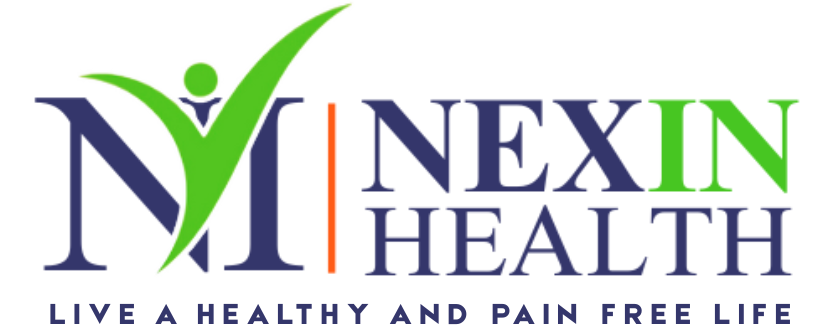Angina Treatment in India
Get a Non-Surgical Treatment of Chest Pain (Angina) from the Expert team of NexIn Health in Over 30 Locations Globally. Our Expert team will help to figure out the best possible treatment as a second opinion through a non-invasive approach by Integrating Advanced Therapies to ensure the Effective and Long Term Management of Cardiovascular Disease (CVD). If you are a heart patient looking for a clinically proven non-surgical solution for your heart disease, Get the appointment today.
Book your Appointment Now
Book AppointmentWhat is Angina?
Angina is chest pain or discomfort caused by reduced blood flow to the heart muscle. It is often a symptom of coronary artery disease (CAD), where the coronary arteries narrow due to plaque buildup, limiting oxygen-rich blood to the heart. Angina typically feels like pressure, squeezing, or tightness in the chest but may also spread to the shoulders, arms, neck, jaw, or back. It can be triggered by physical exertion, stress, or even heavy meals.
There are two main types of angina: stable, which occurs predictably with activity, and unstable, which happens unexpectedly and is a medical emergency. Treatment includes lifestyle changes, medication, and sometimes medical procedures to restore proper blood flow. Managing risk factors like high blood pressure, cholesterol, and smoking can help prevent or reduce angina episodes.
What does angina feel like?
Many people describe angina as chest pain or pressure, often feeling like a squeezing or tightness. Some compare it to indigestion, while others find it difficult to put into words. The discomfort usually starts behind the breastbone and may be hard to pinpoint exactly.
Angina pain can radiate to other parts of the upper body, such as the neck, jaw, shoulders, arms, back, or even the abdomen.
In addition to chest pain, reduced oxygen to the heart can cause other symptoms, known as “angina equivalents.” These may include:
- Fatigue
- Nausea or vomiting
- Shortness of breath
- Excessive sweating
These symptoms, along with chest pain, can help identify angina, even if the discomfort spreads to other areas of the body like the arms or jaw.
What Causes Angina?
Angina is chest pain or discomfort that occurs when the heart muscle doesn’t get enough oxygen-rich blood. It’s often a symptom of an underlying heart problem, most commonly coronary artery disease (CAD). Several factors can cause or contribute to angina:
- Coronary Artery Disease (CAD): This is the most common cause of angina. It occurs when the coronary arteries that supply blood to the heart become narrowed or blocked due to the buildup of plaque (atherosclerosis). Reduced blood flow limits the oxygen supply to the heart, especially during physical activity or stress, causing chest pain.
- Coronary Artery Spasm: Also known as Prinzmetal’s angina, this occurs when the coronary arteries temporarily tighten or spasm, reducing blood flow to the heart. Unlike CAD, this type of angina can occur at rest.
- Heart Valve Problems: Conditions like aortic stenosis, where the valve between the heart and the aorta is narrowed, can cause angina because the heart has to work harder to pump blood.
- Hypertension (High Blood Pressure): Elevated blood pressure forces the heart to work harder than normal, increasing its oxygen demand and potentially leading to angina.
- Anemia: A significant reduction in red blood cells can limit the amount of oxygen carried to the heart muscle, potentially leading to angina.
- Emotional Stress or Anxiety: Stressful situations can trigger angina by increasing the heart rate and blood pressure, which raises the heart’s oxygen demands.
- Exertion: Physical activity increases the demand for oxygen in the heart, and if the blood supply is inadequate, angina can occur. This is why angina often happens during exercise, climbing stairs, or other activities that stress the heart.
- Other Factors: Smoking, diabetes, obesity, and high cholesterol levels are risk factors that can contribute to angina by increasing the likelihood of coronary artery disease.
In summary, angina is caused by an imbalance between the heart’s need for oxygen and the ability of the coronary arteries to supply that oxygen.
Risk Factors for Angina
Several factors increase the likelihood of developing angina, either by contributing to heart conditions like coronary artery disease or by limiting the heart’s oxygen supply. These risks can be categorized into those that can be modified through lifestyle changes and treatment, and those that cannot.
While some risk factors, like aging, are beyond control, others can be managed with healthier habits and medical care. It’s important to discuss strategies for reducing your risk with your healthcare provider.
Modifiable Risk Factors:
- Anemia (low red blood cell count)
- Chronic stress or emotional strain
- Diabetes
- Unhealthy diet (high in saturated fat, trans fat, sugar, salt, or refined carbs)
- Excessive alcohol consumption
- Exposure to air pollution (especially particulate matter from dust, traffic, or industrial activities)
- High blood pressure
- High cholesterol levels
- Inflammation in the body
- Metabolic syndrome (a cluster of conditions including high blood pressure, high blood sugar, and excess body fat)
- Physical inactivity (lack of regular exercise)
- Obesity
- Smoking, vaping, or tobacco use
- Recreational drug use
- Chronic exposure to secondhand smoke
Non-Modifiable Risk Factors:
- Older age (over 45 for men and individuals assigned male at birth (AMAB), over 55 for women and individuals assigned female at birth (AFAB))
- Family history of early heart disease
- Heart conditions like heart failure, heart valve disease, or hypertrophic cardiomyopathy (enlarged heart)
Managing modifiable factors, such as quitting smoking, improving your diet, and staying physically active, can significantly reduce your risk of developing angina and related heart problems.
How is Angina Treated?
Treatment for angina focuses on addressing the heart condition causing it, with the main objectives being to enhance blood flow to the heart and reduce the risk of serious complications. Your healthcare provider will conduct a physical examination and perform diagnostic tests to assess your condition and recommend the most effective treatment plan.
Common treatments for angina include:
- Anticoagulants or antiplatelet medications to reduce the risk of blood clots.
- Blood pressure-lowering medications to manage hypertension.
- Cholesterol-lowering drugs to prevent plaque buildup in the arteries.
- Angina-specific medications to help manage symptoms.
- Lifestyle changes, such as quitting smoking, adopting a heart-healthy diet, and increasing physical activity.
- Coronary artery bypass grafting (CABG), a surgical procedure to improve blood flow to the heart.
- Percutaneous coronary intervention (PCI), also known as coronary angioplasty and stenting, to open blocked arteries.
- In some cases, people may continue to experience angina despite treatment. To manage sudden chest pain, your provider might prescribe fast-acting medications, such as nitroglycerin, which helps to quickly relax and open blood vessels.
For individuals with persistent angina, another option is Enhanced External Counterpulsation (EECP) therapy. This non-invasive treatment involves applying pressure to the lower legs to promote better blood circulation to the heart, potentially reducing angina symptoms.
Why Choose Nexin Health Clinic For Angina Treatment in Noida?
Choosing Nexin Health Clinic for angina treatment in Noida offers several advantages that make it a reliable and effective option for cardiovascular care:
- Expert Cardiologists
The clinic has a team of highly qualified and experienced cardiologists who specialize in diagnosing and treating angina. They are well-versed in the latest advancements in cardiology, ensuring accurate diagnosis and effective treatment.
- Advanced Diagnostic Technology
Nexin Health Clinic uses state-of-the-art equipment for comprehensive cardiac evaluations. This includes ECG, stress tests, echocardiograms, and other advanced diagnostic tools that help in early detection and accurate treatment planning.
- Customized Treatment Plans
Treatment plans are tailored to each patient’s specific condition, lifestyle, and risk factors. Whether it’s medication management, lifestyle counseling, or interventional procedures like angioplasty, the clinic offers a personalized approach to ensure optimal outcomes.
- Minimally Invasive Procedures
The clinic emphasizes minimally invasive treatment options for angina, reducing recovery time and discomfort. This includes catheter-based treatments like angioplasty and stent placement.
- Comprehensive Care
Nexin Health Clinic offers end-to-end cardiac care, from prevention and diagnosis to treatment and rehabilitation. Their multidisciplinary team ensures holistic management of cardiovascular conditions, addressing both the physical and emotional aspects of heart disease.
- Patient-Centric Approach
The clinic places a strong emphasis on patient education and empowerment. They ensure patients are fully informed about their condition and treatment options, fostering a collaborative approach to healthcare.
Book An Appointment With Us
Experience top-quality healthcare at NexIn Health Clinic. Schedule your appointment with our expert team today for personalized and compassionate medical care. Book now to prioritize your health and well-being!
Get Appointment With Nexin health
Choose Nexin healthy For Heart
Treatments!
- TAVI/TAVR
- Heart Surgery
- ASD/VSD/PDA Device
- Device Closure
- Angina Treatment
- Heart Failure
- Heart Attack
- Chest Pain
- Hypertension
- Heart Diseases
- Heart Holes Surgery
13 Years of Experience
Our clinic has a rich history of delivering quality care, backed by over a decade of expertise in the field.
25,000 Patients Treated
We have a proven track record of successfully treating a diverse range of patients, demonstrating our commitment to effective and personalised care.
Non-Invasive Treatments
We specialise in advanced, non-invasive treatment options that focus on your well-being without the need for surgical procedures.
Frequently Asked Questions (FAQs) for Patients on Angina Treatment in Noida



